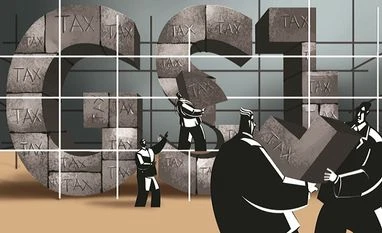The Goods and Services Tax (GST) Council is likely to ask the National Informatics Centre (NIC) to develop the software to generate E-way Bills for movement of goods under the GST regime.
There will, however, be no relaxation to the industry in respect of the Rs 50,000 threshold set for registration of goods for inter- and intra-state movement to plug tax evasion.
Initially, GST Network -- the IT platform for the GST regime -- was entrusted with the task of developing the software for the e-way bill, but it was estimated that the exercise may take up to 6 months.
"The revenue department has held discussions with the NIC for developing the software. The NIC can develop it faster and at a lower cost than the private agencies which would be roped in by GSTN. The final decision would be taken by the Council in its next meeting," an official said.
The GST Council, chaired by Union Finance Minister Arun Jaitley and comprising his state counterparts, will meet on June 18 to finalise the rules regarding E-way Bill, among other things.
GST Network has already floated tender inviting companies for developing the system.
Also Read
The official said the selection of private agencies, which is a long-drawn process, the hardware may cost approximately Rs 200 crore. The NIC may get the hardware at a lower cost, given its own procurement agencies.
Over the last three decades, the NIC has implemented many network-centric application software for programme implementation in various ministries and departments.
GST is scheduled to take effect on July 1. With the lack of software preparedness, the Centre was in favour of delaying 'e-way bill' provision by a couple of months as states are keen to continue with their own present dispensation.
The draft e-way bill rules made it necessary for any movement of goods, within or outside the state, having a value of more than Rs 50,000 to be registered with the GST-Network (GSTN) website.
GSTN would generate e-way bills that will be valid for 1 -15 days, depending on the distance to be travelled -- one day for 100 km and 15 days for more than 1,000 km transit. The tax officials can inspect the 'e-way bill' anytime during the transit to check tax evasion.
The draft rules provide that the person-in-charge of the vehicle will be required to carry the invoice or bill of supply or delivery challan, and a copy of the e-way bill or its number should either be physically carried or mapped to a radio frequency identification device (RFID) embedded onto the vehicle.
The industry has expressed concern over provisions in the draft law, saying the Rs 50,000 limit was too low and that the timeline for completion of transport operation was "impractical and removed from reality".
They also felt that the e-way bill under the current form is applicable to the movement of all kinds of goods without making any distinction between goods that are evasion-prone or not.
The draft rules authorise the tax commissioner or an officer empowered by him on his behalf to intercept any vehicle to verify the e-way bill or the number in the physical form for all inter-state and intra-state movement of goods.
Physical verification of vehicles can be carried out on specific information of evasion of tax, as per the rules.
The officer will be required to submit a summary report of every inspection of goods in transit within 24 hours and the final report within three days of inspection.
)